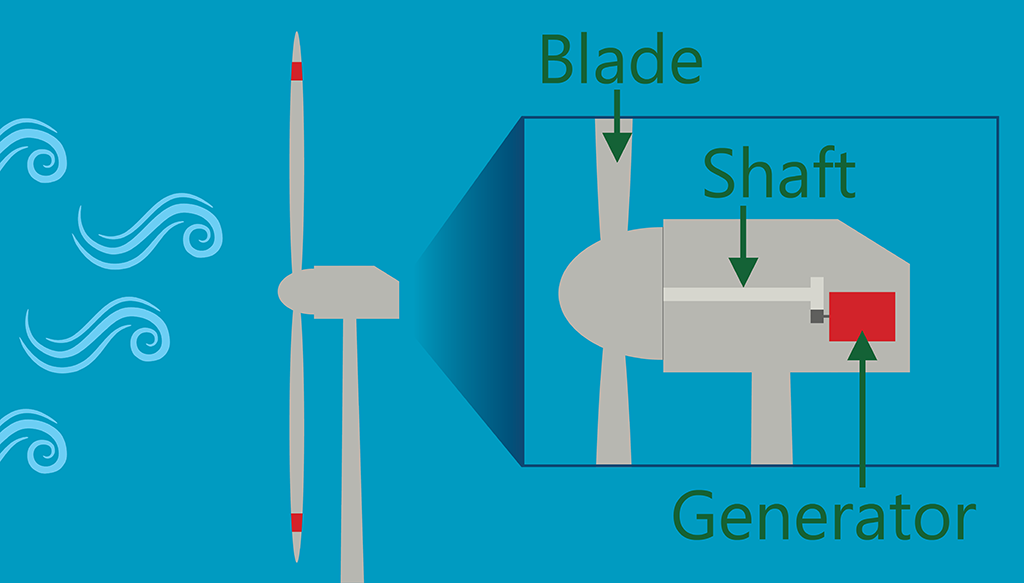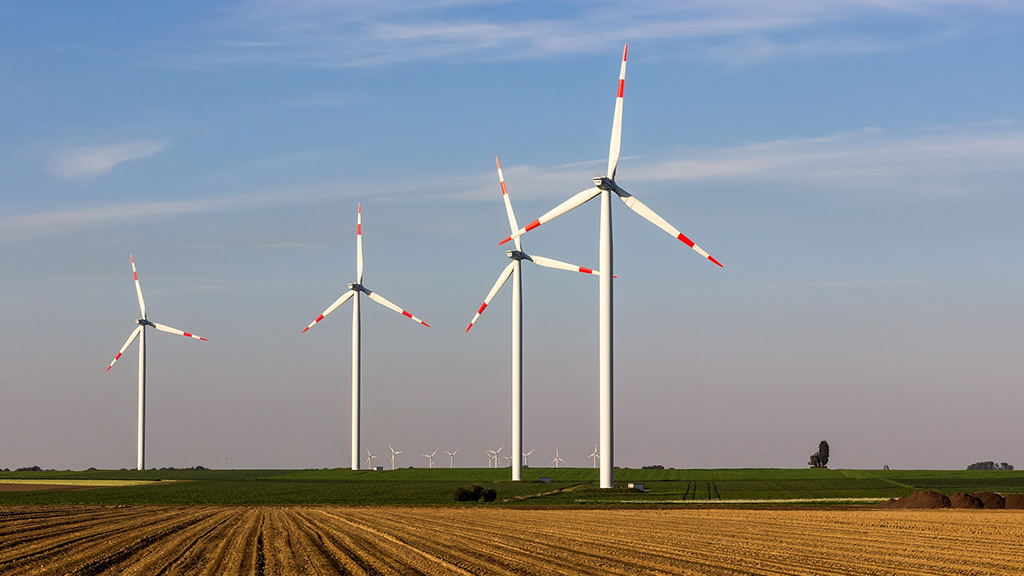With just two weeks before Earth Day, now is the time to decide what you can do to live more sustainably! A great area to consider is how you use energy. Follow along with the Wisconsin K-12 Energy Education Program (KEEP) as we continue investigating wind. Do you know how fast the wind blows by you?
Wind speed
Last week, we looked at how wind is formed and what direction it goes. Going one step further, you can determine how fast it is moving. Wind is measured by the Beaufort Scale, a scale designed in the 1800’s to measure wind force at sea. This scale helps people to simply observe environmental conditions to determine how fast the wind is blowing.
Think back to our evidences of energy: movement, sound, light, and heat. The Beaufort scale has us looking for evidence of the wind blowing. For example, if you can feel the wind on your face, see leaves rustle, and see flags fluttering, then you probably have a light breeze moving at 4-7 miles per hour. There have been adaptations of the Beaufort scale to easily estimate wind speed. One of those is shown below.
Why does this matter?
Wind is a renewable energy resource we can use over and over. It is important to know where wind is blowing, but also locate areas with plenty of wind to place wind turbines that can create electricity. Electricity is created when wind hits the blades of the turbine. The blades turn, causing the shaft to rotate, powering a generator. The generator takes the mechanical energy being used and converts it to electrical energy.


Even if you don’t find wind turbines in your area, there are plenty of ways we can still use the wind. It is important to have good wind speed to sail a boat or fly a kite. What are some other reasons we would want to know how fast the wind is blowing?
It’s your turn!
Figure out how fast the wind is blowing in your area using the third video in KEEP’s Exploring Energy Outdoors Series.
Take some time today to look for ways you use energy around your household. What are ways you can decrease your energy consumption? Check out this week’s sustainability focus ideas below!
Travel
- Walk or bike instead of driving
- Carpool with others when possible
- Take public transportation, like a bus
Join KEEP next week as we continue to look at renewable energy resources and how we can use energy more sustainably as we get closer to Earth Day!
Teacher/Parent Resources
- BSF Activity Sheet - Wind Scale 4-6.pdf (uwsp.edu)
- KEEP Activity - SchoolyardBreezes.indd (uwsp.edu)
- Video - https://youtu.be/I9ayfQgAvfw
Don't forget to share your student's results on social media by including the hashtag #EarthDayPledge as well as tagging Focus on Energy and KEEP to receive a FREE seedling to plant.

Learn more at www.keepprogram.org.